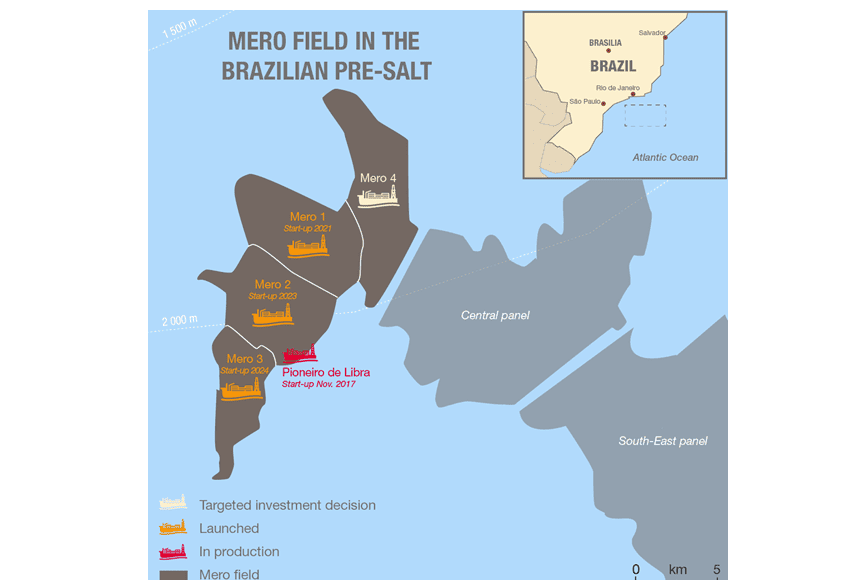The Libra Consortium, a Petrobras-led group, has officially greenlit a natural gas and CO2 separation and reinjection initiative in the Mero field, located in the Brazilian deep offshore pre-salt region. The move, marking the final investment decision, aims to implement an advanced subsea separation technology, called HISEP®, to extract oil from CO2-rich gas on the ocean floor and reinject the gas into the reservoir directly.
Petrobras-led group makes order with TechnipFMC valued over US$1 billion | OilNOW
The HISEP® technology, a high-pressure subsea separation system, is set to reduce the volume of gas transported to the topside floating production, storage and offloading (FPSO) vessel. This reduction targets cutting greenhouse gas (GHG) emissions intensity while enhancing the field’s production capacity.
The initiative is part of the Libra Consortium’s research and development agenda. The HISEP® subsea separation pilot unit will be connected to the Marechal Duque de Caxias FPSO, a crucial component of the ongoing Mero 3 project currently under construction.
Subsea7 awarded major contract amendment for Petrobras’ Mero 4 field development | OilNOW
Namita Shah, President of OneTech at TotalEnergies, stated “TotalEnergies is proud to participate in this technology’s development in the Mero field. Besides its benefits in Brazil, it should find applications for other Company projects. This innovation aligns with TotalEnergies’ approach to developing its businesses while reducing emissions and costs for sustainable competitiveness.”
Mero, operated by Petrobras (38.6%), includes contributions from TotalEnergies (19.3%), Shell Brasil (19.3%), CNPC (9.65%), CNOOC (9.65%), and Pré-Sal Petróleo S.A (PPSA) (3.5%).



